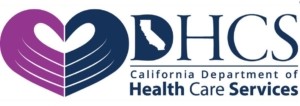Recover From Alcoholism and Dependency
Alcohol addiction, also known as alcoholism, is one of the most common addictions in the United States. A lot of people who suffer from alcoholism typically believe that they are fully capable of stopping when they want to stop. Unfortunately, alcohol addiction has a strong grip on those who suffer from it. In fact, it’s rare that this affliction goes away on its own without professional addiction treatment. The Dana Point Residential Mental Health facility offers treatment for co-occurring alcoholism and mental health conditions to help those struggling with alcohol addiction recover and live a healthy, sober life.
How Can Treatment Help?
Dana Point Residential Mental Health offers supportive and thorough treatment for alcohol use disorder that co-occurs with mental health conditions. We understand that it can be challenging to tackle this type of substance use disorder. That’s why our treatment program begins with a safe and effective process to help people kickstart long-term recovery. It’s a place where individuals get to learn effective solutions to achieve sobriety with the help of a supportive and compassionate care team. Our inpatient program helps clients understand the nature of their addiction. More importantly, our team of clinicians provides individuals with an individualized treatment plan to help them manage their addiction and reclaim their life.
Here are some of the most common symptoms of alcoholism:
- Worrying where your next drink is coming from
- Coordinating social, family, and work events around drinking
- Seeing that you have a compulsive need to drink and finding it hard to stop once you start
- Waking up and immediately reaching for a drink or feeling the need to have a drink first thing
- Suffering from symptoms of alcohol withdrawal, such as sweating, shaking, or nausea
Frequently Asked Questions
When drinking becomes a focus in everyday life, it usually means the individual no longer has control over their alcohol consumption. Society’s idea of someone who needs addiction treatment is probably an individual who displays characteristics of someone who is drunk. But anyone can be a functioning member of society and still have issues with alcohol dependence. The biggest sign is a psychological and physical tie to alcohol which indicates substance use disorder.
It can be difficult to identify substance use disorder in your loved one, especially because there are different levels. Some types of addiction are less obvious. But you may still be able to spot some common behaviors and signs.
If you’re concerned about where your next drink is coming from and coordinating plans around drinking, you may want to seek out a treatment facility for alcohol addiction. If you have a compulsive need to drink and find it difficult to stop, or you’re immediately reaching for a drink first thing in the morning, you should consider contacting a treatment center. Withdrawal symptoms regarding alcohol typically involve shaking, nausea, and sweating, which usually subside when you have a drink. Detoxification with the help of a professional is recommended.
If you find that your friend or family member is acting strangely, blacking out frequently, and forgetting things easily, you should observe their behavior. Watch out for any unexplained injuries, mood swings, or unusual weight loss. If you notice that they are constantly late or absent from work or school, or perhaps they may have just been fired from a job, you may want to suggest a personalized alcohol treatment program in California.
Our residential mental health facility in Orange County assists individuals with mental health conditions who also need alcohol treatment by creating a personalized treatment plan to ensure long-term sobriety. Our treatment program is offered at a state-of-the-art facility where patients can cleanse their bodies and begin their long-term recovery journey.
3d tour
Comfortable Accommodations for Alcohol Treatment in California
Our facility offers spacious rooms with views and carefully chosen meals with preparation included. Clients will get access to a fitness center, the beach, and many more accommodations.
Some additional text
Types of Alcoholism
Young Adult Sub-Type
This type of alcoholism involves young adult drinkers who don’t have any history of alcoholism or co-occurring mental health disorders. A lot of individuals within this category tend to deny that they have a dependence on alcohol. They typically chalk it up to being a lifestyle choice that is appropriate for their age group. With this type of individual, you may hear the phrase, “What’s the harm in having a good time?”
Young Antisocial Sub-Type
Young adult drinkers in this category typically have a family history of alcoholism and co-occurring mental illnesses. They may even have substance use disorder. These types of alcoholics may be difficult to treat due to issues created by antisocial personality disorder. Loved ones are able to quickly identify their disorder because it typically starts at an earlier age than some of the other types of alcohol addiction. Young adults under this sub-type likely have a family history of alcohol use disorder.
Functional Sub-Type
Those who suffer from this type of alcohol use disorder are usually successful, middle-aged adult men. A lot of them have stable jobs and supportive families. But they will most likely have a history of alcoholism within the family and it is often co-occurring with depression. People within this category usually postpone or avoid treatment programs because their alcoholism seems “acceptable” to family and friends. But keep in mind that there are levels to alcoholism and the key indicator is dependence on the substance in order to function.
Intermediate Familial Sub-Type
The intermediate familial sub-type of alcohol addiction is most often characterized by middle-aged people with a family history of alcoholism. It is most common for them to experience issues with mental health, such as a significant depressive episode.
Chronic Severe Sub-Type
This type of alcohol addiction typically involves people of any age. Those who have a family history of alcoholism, mental illness, or addictions to other substances can also be affected with this sub-type.






